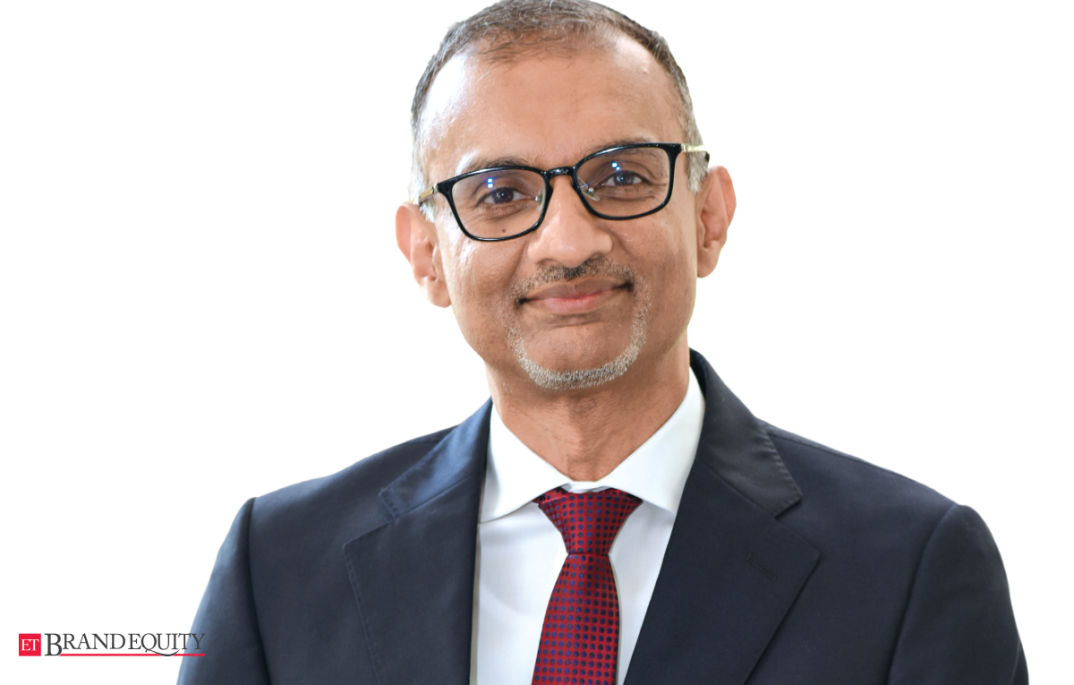Deepak Subramanian, executive director and general manager at Hindustan Unilever
“/>Deepak Subramanian, executive director and general manager at Hindustan Unilever“How many of you want to be CMOs? Do you feel ready or have what it takes?” These were few questions tossed at the audience by Deepak Subramanian, executive director and general manager at Hindustan Unilever while addressing the audience at the Brand World Summit 2024 organised by ETBrandEquity.
The CMO world is changing. It’s not easy being a CMO. Subramanian cited statistics that the average CMO tenure of Fortune 500 companies has come down by a quarter, over the last 12 months. There is both upward mobility and a shakeout.
He believes part of this is good because a lot of CMOs are getting promoted to become general managers or CEOs. On the other hand it is also because incumbent CMOs can’t deliver what they are tasked with.
He explained that the pressure has increased due the changes within the roles of a CMO. So what’s really happening? Subramanian distilled it down to the supply side changes and the demand side changes. In a post tech world, the supply side is experiencing changes in hardware, cloud chips, software especially the infrastructure layer. This paired with the emergence of advertising in social media and social commerce has created opportunities for marketers.
While for the demand side changes, Subramanian explained the generational curve which will fundamentally change the equation and play over the decade. He believes that there will be more demand for purposeful and sustainable brands which will be able to provide trust.
Subramanian highlighted that the key role of a CMO in the future is the ability to operate in an ever-evolving environment. A typical CMO should be a brand custodian and marketing professional who can have impactful actions.
Subramanian posed a significant question, “What do CMOs have to do going forward?”
The CMO of the future is no more just a brand custodian. He shared, “I believe that the CMO of the future is somebody who’s going to be able to architect the organisation much more than before. They will be the data strategist, the sustainability strategist, brand strategist and the technology strategist. They do so by becoming ROI champions and not just depend on CFOs to do that.”
He suggested that CMOs of the future will be ‘audience first thinkers’ and ‘channel first thinkers’ who become an omnichannel leader. This can only be possible if the CMO is also a unifier in the organisation that eliminates organisational silos.
While speaking about two foundational principles as a prerequisite for a successful CMO, he shared, “You get recruited for your IQ, you get promoted for your EQ, but your career longevity can be impacted based on your AQ. AQ is your adaptability quotient.”
He further added, “This definitely played out for me in my life. I’ve spent many years in Unilever and I constantly have had to adapt and I am adapting in a number of ways to the changing context.”
About the second foundational principle, he emphasised the need for one to have their own native CMO plan crafted deliberately and meticulously. “In Unilever, we have this concept called ‘individual development plan’ and it’s based on the 70-20-10. About 70 per cent of the development is in the job, 20 per cent in relationships and 10 per cent in formal training,” Subramanian articulated.
Elaborating on how to effectively build a development plan for oneself, Subramanian conveyed, “I think one of the hardest things for a CMO and a marketer to do is to be able to clearly and simply separate what are the functional benefits, what are the emotional benefits, what are the psychological benefits of a brand.”
Rexona redesigning its packaging for differently abled people, was an example illustrated by Subramanian. It depicts how brands can craft a narrative that demonstrates all the societal benefits of their product seamlessly. He added that the features in the new packaging also resonated with the larger audience.
Subramanian also touched upon sustainability being the key focus of CMOs of the future. “CMOs of the future will have to know their financial measures and their non-financial measures with their brands really, really strongly.”
The last piece to the puzzle of CMOs of the future is data. “I think going forward, most organisations will have to invest, if not already done, into the CDPs and the data platforms. Are you, as a CMO, clear about how you select your CDP?”
Linking this idea with tech, he also discussed the need for CMOs to be involved in the setup of the ad tech or market technology of the organisation.
Subramanian ended his session by urging leaders and co-founders in the audience. He said, “I would encourage a lot of CEOs to make the CMO a co-sponsor for your digital transformation and your sustainability program.”
A Formula-1 race with Cognizant as a sponsor, a New York or London marathon with TCS, or love-all in Tennis with Infosys. Does this make the invisible tech behind all these sports come alive and get close to consumers? What drives the affair of tech companies with global high visibility sponsorships?
It’s business not as usual in India. The number of new categories and young brands that have emerged in India in the last 10 years, have surpassed those in decades past. A new world needs new marketing. But whose job is it to save marketing? A recent survey by The Womb, in collaboration with Quantum Research and The Effectiveness Partnership, UK, tells us whether we have the hero we need.
- Published On Jul 8, 2024 at 07:51 AM IST
Join the community of 2M+ industry professionals
Subscribe to our newsletter to get latest insights & analysis.
Download ETBrandEquity App
- Get Realtime updates
- Save your favourite articles
![]()
![]()
Scan to download App






